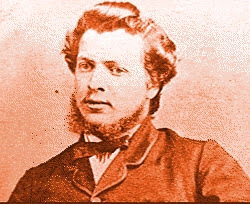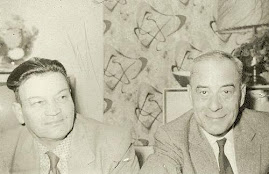This is long overdue. Many First Nations people have been impacted by legislation that discriminates and puts First Nation women at an even greater disadvantage then any other group. The descendents of these women have the right to claim their inherent place and heritage. Sharon McIvor has been a courageous fighter and through a walk of perseverence she has been able to demonstrate a fight for fair human rights for all the generations who have been impacted by the legislation.
Tue. Apr. 7 2009 5:42 PM ET
The Canadian Press
VANCOUVER -- The B.C. Court of Appeal has given the federal government a year to amend sections of the Indian Act it says violate equality provisions of the Charter of Rights.
In a unanimous ruling, the court found that two sections of the act continue to discriminate against aboriginal women who married non-aboriginal men and, crucially, their children when it came to conferring Indian status.
The Appeal Court found that 1985 amendments to the Indian Act designed to conform to the newly minted Charter's equality rights actually discriminated against some people who should be able to claim Indian status.
The ruling stems from a longstanding dispute involving Sharon McIvor of Merritt, B.C., and her son Charles Grismer.
McIvor lost her Indian status when she married a non-aboriginal man but after 1985, she fought for 20 years to regain status for herself and her son.
She and Grismer challenged a provision that barred Grismer from passing on Indian status to his children from a non-aboriginal spouse, something he would have been able to do had his father -- instead of his mother -- been aboriginal.
Background Article:
http://www2.canada.com/vancouversun/news/editorial/story.html?id=48a6212d-c539-4cba-8d5f-4a57f5feeec9
The long, hard road of Sharon McIvor
She has fought for two decades for her and her children's rights under the Indian Act. Despite a court victory, her fight isn't over yet
Daphne Bramham
Vancouver Sun
Friday, November 09, 2007
The Native Women's Association of Canada and several B.C. women's groups describe it as one of the most important equality rights cases in Canada, affecting an estimated 300,000 people who were improperly denied Indian status.
It began in 1985 when Sharon McIvor was a law student. She had no idea that her battle to reclaim her birthright and that of her descendants would drag on well into the first decade of the 21st century, or that it would likely end up in the Supreme Court of Canada.
A descendant of Lower Nicola Valley band members, McIvor applied within months of 1985 amendments to the Indian Act to be registered as a status Indian along with her children.
Both McIvor's grandmothers were Indians, but her grandfathers were not.
The amendments were ostensibly supposed to remedy the gender inequity of stripping Indian status from women and denying it to their children if they married non-Indian men. Men who married non-Indians not only retained their status, but their wives and children were registered as status Indians.
But the amendments simply put off the gender discrimination by a generation. Women who married non-Indians and their children got status, but the women's grandchildren did not, while the grandchildren of Indian men and non-Indian women did.
Sixteen months after that first letter, McIvor received a reply from the government. She could be registered as a status Indian, but her children could not.
On May 29, 1987, McIvor wrote another letter asking that the decision be reviewed. It took 21 months for a response. In February 1989, she was told that the initial decision had been upheld.
McIvor launched her court challenge that year, but her case wasn't heard until October 2006, 17 years later.
B.C. Supreme Court Justice Carol Ross agreed with what McIvor has been saying all these years -- the 1985 Indian Act's section that determines who is given Indian status contravenes the Charter of Rights and Freedoms as well as international conventions on human rights, women's rights and children's rights.
In June 2007, Justice Ross declared the section "of no force and effect" because it "authorizes the differential treatment of Indian men and Indian women born before April 17, 1985, and matrilineal and patrilineal descendants born before April 17, 1985."
In a sharply worded, 144-page judgment, she said that by drawing a distinction between male and female ancestors in determining who can be registered as a status Indian, the section offends the basic notion of human dignity.
The judge wrote that the section implies that "one's female ancestors are deficient or less Indian than their male contemporaries. The implication is that one's lineage is inferior. The implication for an Indian woman is that she is inferior, less worthy of recognition."
Because the government had used every tactic possible to delay the case getting into court for 17 years, Ross refused its request to have two years to find a remedy.
It was a sweeping victory. The favourable decision stunned McIvor, who is now a 59-year-old grandmother, practising law part-time in Merritt and teaching law, indigenous studies and political science at the Nicola Valley Institute of Technology.
"I actually didn't trust that we would get a good decision," she said this week. "I've acted as counsel in other cases, similar kinds of cases involving women's equality and I haven't had any good decisions . . . . It's just so totally unbelievable that we won."
But it was only the first round. The government has vowed to appeal.
Set aside just how offensive it is to any reasonable person's expectation of a speedy hearing that it took so long for McIvor's case to be heard.
What is so depressingly evident throughout the 144-page judgment is just how badly we have mistreated -- and continue to mistreat -- aboriginal women and their children. It started when the colonial government lumped all aboriginal people together and misnamed them Indians.
In its determination to "civilize" aboriginal people, the Indian Act of 1850 imposed and entrenched a strictly patriarchal system. Even though many first nations were matriarchal societies, the "civilizers" stripped aboriginal women of their equality and property rights and overturned centuries-old hereditary systems.
The 1857 Act to Encourage the Gradual Civilization of Indian Tribes that "enfranchised" men over 21 who met specific criteria, not only stripped them of their Indian status, but that of their wives and children as well.
The 1869 Indian Act went further. It is the great-great-grandfather of the discriminatory system that was continued into the current act. Women who married non-Indians lost their Indian status. Women who married outside their own tribe were stripped of their band status, which meant if the marriage failed they could not return home.
All of the subsequent revisions and amendments to the Indian Act have failed to correct those inequities.
They have continued even though the Canadian Bill of Rights was passed in 1960; and even though in 1982 the United Nations Committee on Human Rights found Canada was in violation of the International Covenant on Civil and Political Rights for effectively denying Indian women access to their culture, religion and language.
"It seems to me," Ross wrote, "that it is one of our most basic expectations that we will acquire the cultural identity of our parents; and that as parents, we will transmit our cultural identity to our children."
It was the judge's empathy for and understanding of what it must be like to be excluded as McIvor and her children were from their culture that most impressed McIvor.
"It was lonely and painful to be excluded from the Indian community," McIvor said when she testified. "My family and I suffered various forms of hurt and stigmatization because we did not have status cards."
They were excluded from the traditional hunting, gathering and fishing as well as from traditional marriage, funeral and healing ceremonies.
They were not allowed to live on reserve land or go to Indian schools and they did not qualify for health and dental benefits or free post-secondary education.
On Oct. 16, 2006 -- the day McIvor's case finally went to court -- the government suddenly found a reason to recognize her son, Jacob Grismer, as a status Indian.
He was "ecstatic" to finally be recognized for what he is, McIvor said, even though the official documents didn't arrive until this past August.
McIvor started this fight for herself and her children. They now all have Indian status. But McIvor vows to continue the fight in the appeals courts for her grandchildren, aged 16 and 14, who do not have status and were not even born when this battle began.
Aside from the personal toll of having to lay bare one's entire life before bureaucrats, lawyers and judges over a period of more than 20 years, this case has cost McIvor tens of thousands of dollars in legal expenses. And it's not over.
It's almost certain to go to the Supreme Court of Canada, which will take at least three years and a minimum of a quarter of a million dollars.
Time and money are no problem for the government. It has deep pockets; McIvor does not.
"It would be horrible to lose because I can't mount a defence," she says.
McIvor estimates that legal costs for the B.C. Court of Appeal will be about $120,000 and that's only because she is doing some of the legal work herself and her lawyers, Robert Grant and Gwen Brodsky, aren't charging her anywhere near their usual fees.
It will cost at least that much to prepare for a hearing at the Supreme Court of Canada. Canada's court challenges program has covered a portion of McIvor's costs so far. But the Conservative government eliminated that program last year.
It's added another burden and further insult to McIvor, who is fighting not only for her family, but for thousands of others like her.
dbramham@png.canwest.com
Sharon McIvor fund
The Supreme Court of B.C. decision is available at: http://www.courts.gov.bc.ca/Jdb-txt/SC/07/08/2007BCSC0827.htm.
The Native Women's Association of Canada and Vancouver Rape Relief and Women's Shelter are sponsoring a reception on Wednesday between 7 and 9 p.m. at Heritage Hall, 3102 Main Street, to honour Sharon McIvor and help raise money for her legal costs.
For information on how to donate to the fund, contact mcivorfund@
rapereliefshelter.bc.ca.
Cheques for the Sharon McIvor Case Fund made out to
Heenan, Blaikie, in trust for Sharon McIvor can also be mailed to Rob Grant at Heenan, Blaikie, Suite 2200, 1055 West Hastings Street, Vancouver, V6E 2E9.
© The Vancouver Sun 2007
Tuesday, April 7, 2009
BC Appeal court orders amendment to part of Indian Act
Posted by
MetisMama
at
8:04 PM
![]()
![]()
Subscribe to:
Post Comments (Atom)





3 comments:
CyberSmokeBlog (www.CyberSmokeBlog.blogspot.com) is organizing a global silent rave at Manitoba Metis Federation Headquarters 150 Henry Avenue.
Pass it on!
Little Wordy
Fox Mulider
Are you sure you're the real Fox Mulder because if you are you misspelled your surname. Besides, that's wordy?
Post a Comment